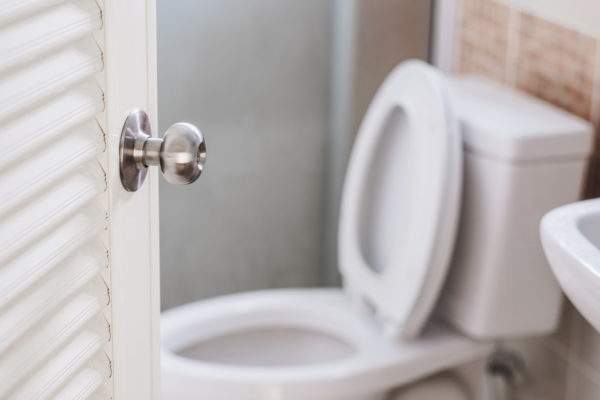Flush These Things and You’re Risking Sewer Backup

Repeat after us: a toilet is NOT a waste disposal system.
Throughout the years, we’ve done restoration work in homes where folks had flushed everything from wads of paper towels to children’s toys and even cellphones. Although it’s tempting for kids – and adults – to send something whizzing down the toilet and into the unknown, there are some things that should absolutely not be flushed. In an attempt to prevent future disasters with clogged sewer lines, backed-up septic systems, and yucky floods, our team has compiled a list of the top things that you should NEVER flush down the toilet.
Feminine Products
Even if your feminine hygiene products claim to be “flushable,” you should still avoid putting them in the toilet. The items are bulky and tend to expand in moisture (that’s their function, after all), which can lead to big problems.
Cooking Grease/Food
It may seem like grease is a liquid that can easily be disposed of down a drain like your toilet, but the fact is that grease will actually cool and congeal into a solid form that is capable of completely clogging up your pipes.
Baby Wipes/Cleaning Wipes
Wet wipes are becoming quite popular for both kids and adults in the bathroom. Unfortunately, these types of wipes have a tendency to cause clogs and backups in sewage lines. Again, even if the wipes are labeled as “flushable,” you should think twice before sending them down the waste pipe, especially in large quantities.
Dental Floss
Dental floss seems harmless enough. After all, it’s just a small bit of string – how much harm could it really do? If you send enough floss down your toilet drain, though, you’re asking for trouble. Dental floss is not biodegradable and it can get tangled up and clogged in your pipes just like hair. On top of everything else, flushing floss is bad for the environment.
Cotton Swabs/Cotton Balls
Don’t let the name fool you into thinking that cotton swabs and balls can be flushed down the toilet. Sure, many toilet paper brands are made from cotton linen (like Cottenelle or Cottonsoft), but swabs and balls are completely different from toilet paper. These items will clump together and create stoppages and blockages in the bends of your pipes.
Diapers
Yes, diapers contain human waste, but that doesn’t mean that it’s ever safe to flush them. In fact, diapers are manufactured to expand in water. It might seem like diapers are too big to even attempting flushing, but you’d be surprised how many people try it. In the highly unlikely event that you’re actually able to get one to flush down the drain, it will get caught and create a major headache for you.
Paper Towels
Paper towels and toilet paper are not the same thing, and should not be treated as such. The bulkier size of paper towels means that the products will tend to expand, bunch, and clump up in your drains and lead to big clogs. Avoid the hassle and put paper towels in the trash can (the real one!) where they belong.
Other Things to Avoid Flushing
Although they won’t necessarily lead to sewer blockages or flooding, there are a couple other items that you should avoid flushing down the toilet. Pills, for example, can have highly toxic effects on the groundwater supply and can cause harm to the environment. Cigarette butts can also cause harm to the environment, and flushing them is a huge waste of water.
What to Do If Your Sewer Backs Up
Although following these steps can help you avoid sewage problems, there’s always the chance that you could be faced with flooding due to clogged pipes or sewer backups. Should this ever happen to you, it’s important that you shut off the water supply immediately to avoid spreading the contamination. Keep children and pets away from the contaminated area. Do not touch the raw sewage with your bare hands and do not try to clean it yourself. The toxic nature of sewage makes it a hazard and an improper cleanup can have serious, long-term consequences. Call an expert water restoration service like Abbotts Fire & Flood. Our team is ready to get you back into a clean, safe environment.
